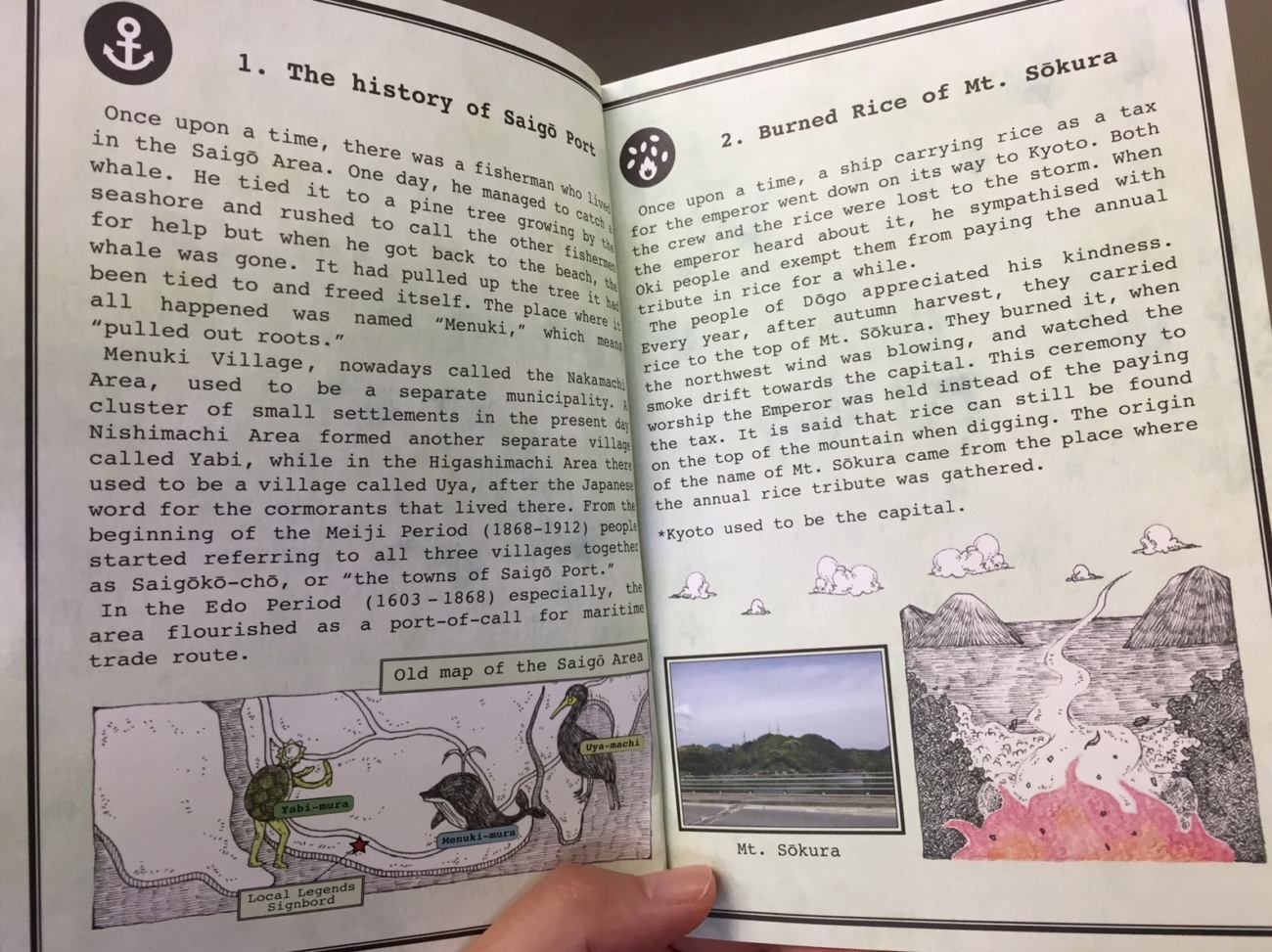Yao-sugi Japanese Cedar Tree at Tamawakasu-mikoto Shrine
On top of being a representative of all the shrines on the island, Tamawakasu-mikoto Shrine holds numerous points of interest, none more eye-catching than the giant Japanese Cedar tree called Yao-sugi. The name translates to “eight hundred” and its origin lies in the local legend of Yaobikuni – a famous Buddhist nun from Japanese folktales who attained extreme longevity by eating the flesh of a mermaid. Local people say it was Yaobikuni herself that planted this magnificent tree. She also made a promise to visit the Tamawakasu-mikoto Shrine again in – you guessed it – eight hundred years.
Not related to the name, but some also like to mention that a big snake supposedly sleeps coiled around the tree roots.
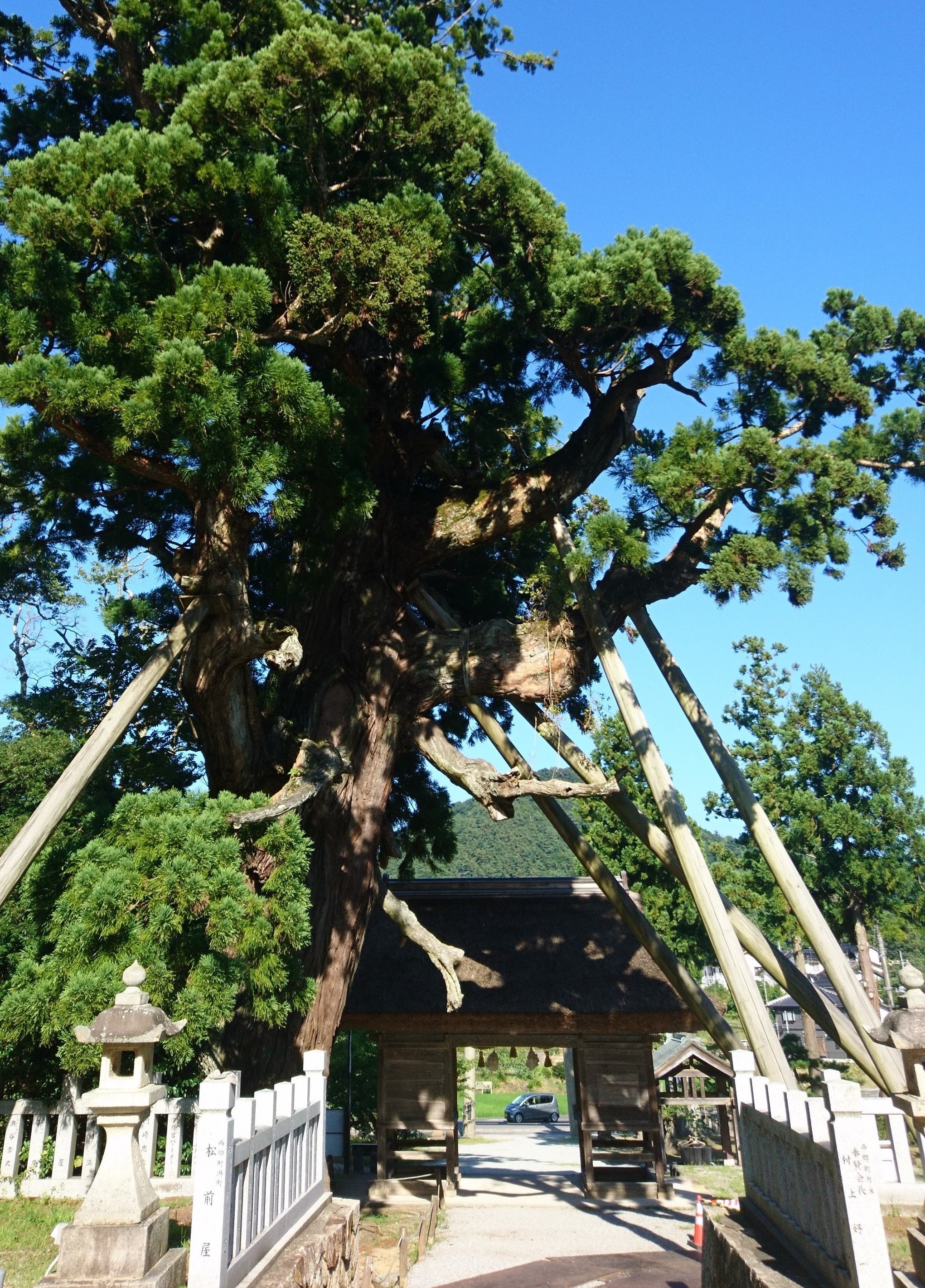
Dangyō-no-taki Waterfalls and Dangyō Shrine
A local legend has it that a Buddhist monk was told in a dream to come and seek the two waterfalls hidden deep in the mountains. Once he had found them, fulfilling the sacred mission, a shrine was built on the site.
This place amazes visitors with its natural scenery combined with the air of mystery, and the long walk up the shrine only serves to build up the sense of anticipation. The journey starts right at the torii gate that marks the boundary of the shrine. Nowadays, the torii gate peeks shyly from behind two giant Japanese Cedar trees, though the local people say it hasn’t always been located there. Once upon a time, the trees of these species in the grounds of the Dangyō Shrine were to be cut down. Upset as the villagers were with this, they set about carrying out the order. One man, though, wished to save the two remaining trees, so he moved the torii gate right behind them. No longer located on the shrine grounds, they were thus safe from the lumberjack’s axe.
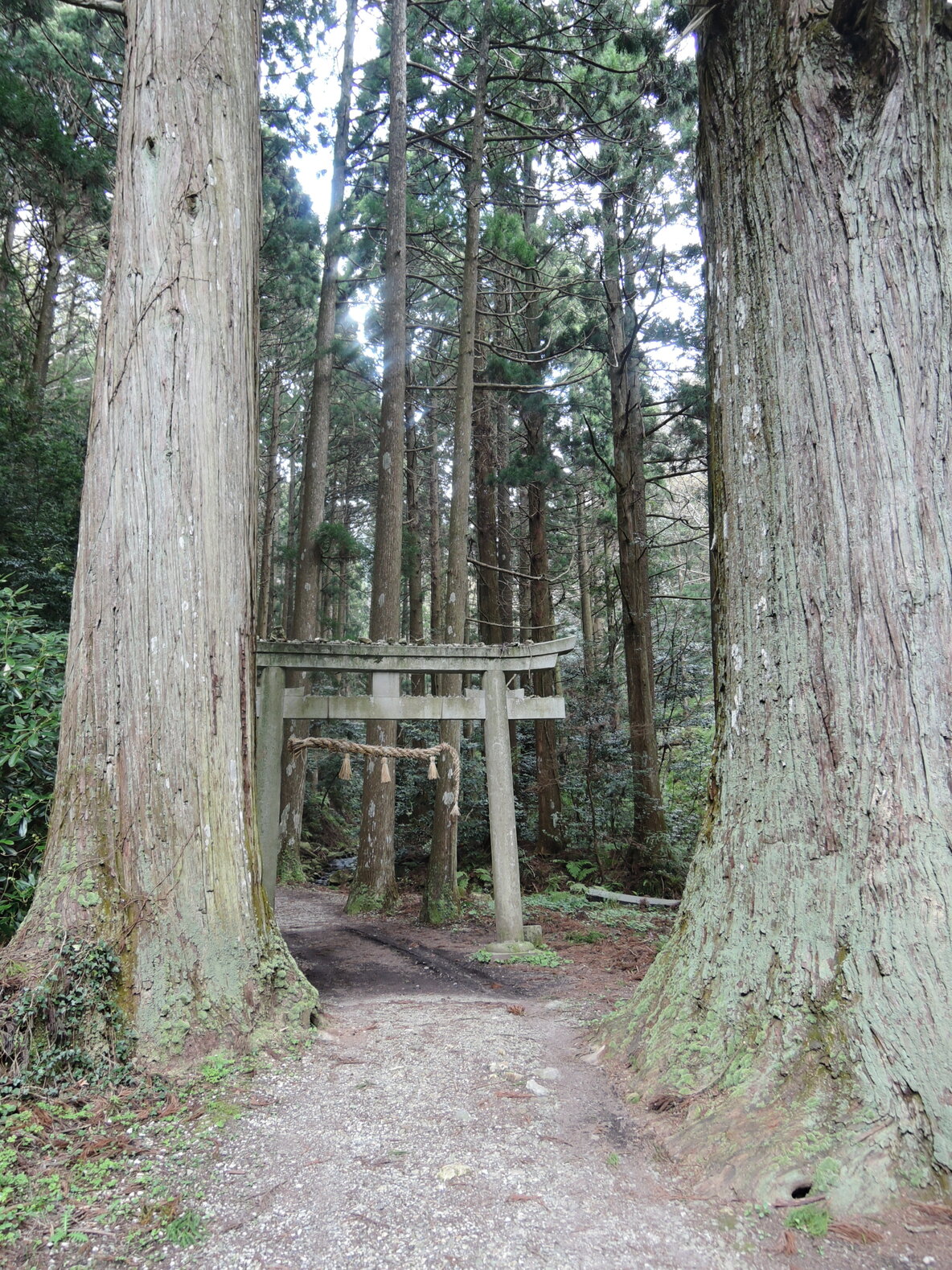
Shirashima Coast
This northernmost tip of Dōgo Island will take your breath away with its scenic beauty – as it supposedly did with the famous poet and scholar, Ono no Takamura. Exiled to Oki Islands in the 9th century, he is said to have visited the Shirashima Coast and made it a subject of his famous poem:
“Now my ship has set sail over the sea, will the fishing boats let that person in Kyoto know of my journey towards those countless islands.”
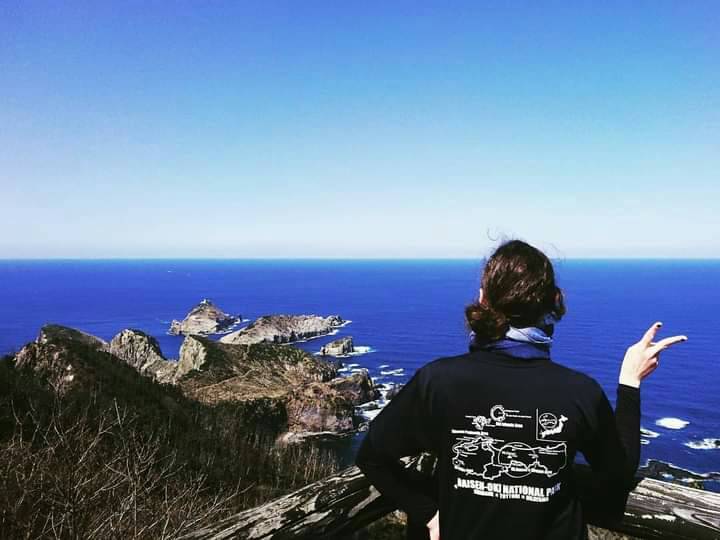
Jōdogaura Coast
Any visitor amazed by the beauty and tranquillity of this coast would readily agree that naming it after the Buddhist Pure Land – a place where one can reach enlightenment – was a fantastic idea. Local people, however, call upon an interesting legend to explain the origin of its name.
Once upon a time, they say, a virtuous monk visited a no less virtuous fisherman who lived in this area. The monk spat out a fish he had for dinner (despite being a vegetarian, the legend notes) and miraculously, it was brought back to life. Bearing witness to that, the fisherman made a remark about fish and their role as a nutrient in human’s diet, then spat out his dinner too.
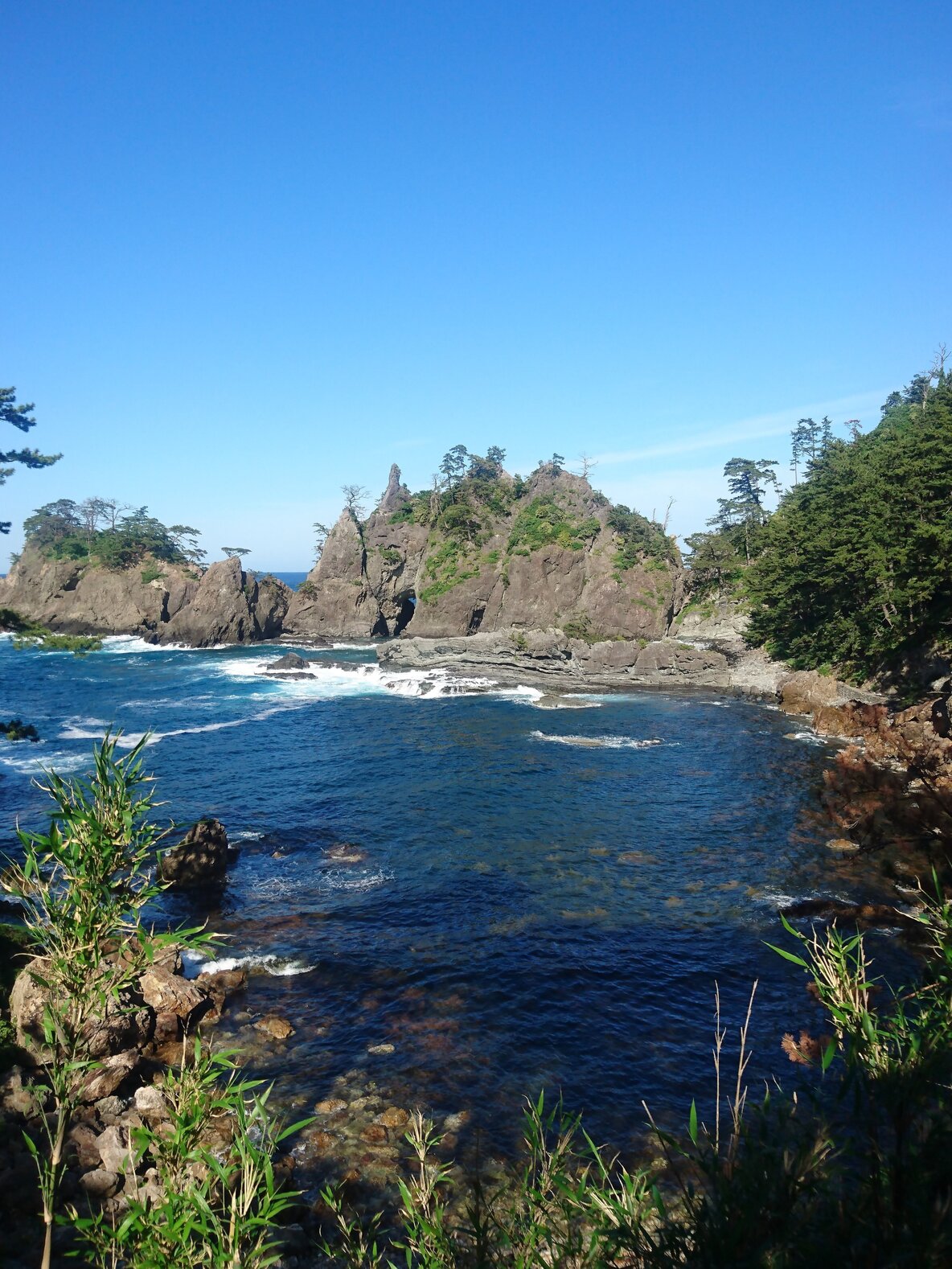
…And even more miraculously, Buddha Amida with his two attendants appeared suddenly on a golden seat. Needless to say, the monk was shocked and somewhat scared by this development. He thus said goodbye to his host, but not before composing a poem in which he compared the Jōdogaura Coast to the Pure Land.
Kappa Kōen Park
Kappa – a cucumber-loving water demon from Japanese folklore. Rumour has it that one such creature once roamed this area, often stealing cucumbers grown by a local man named Kyūbei. The thievery acts were so audacious that exasperated Kyūbei could bear them no more. One night, he hid himself by the field, a sword in hand, and once the thief showed up, the man cut off the thief’s arm. He then picked it up and took it home.
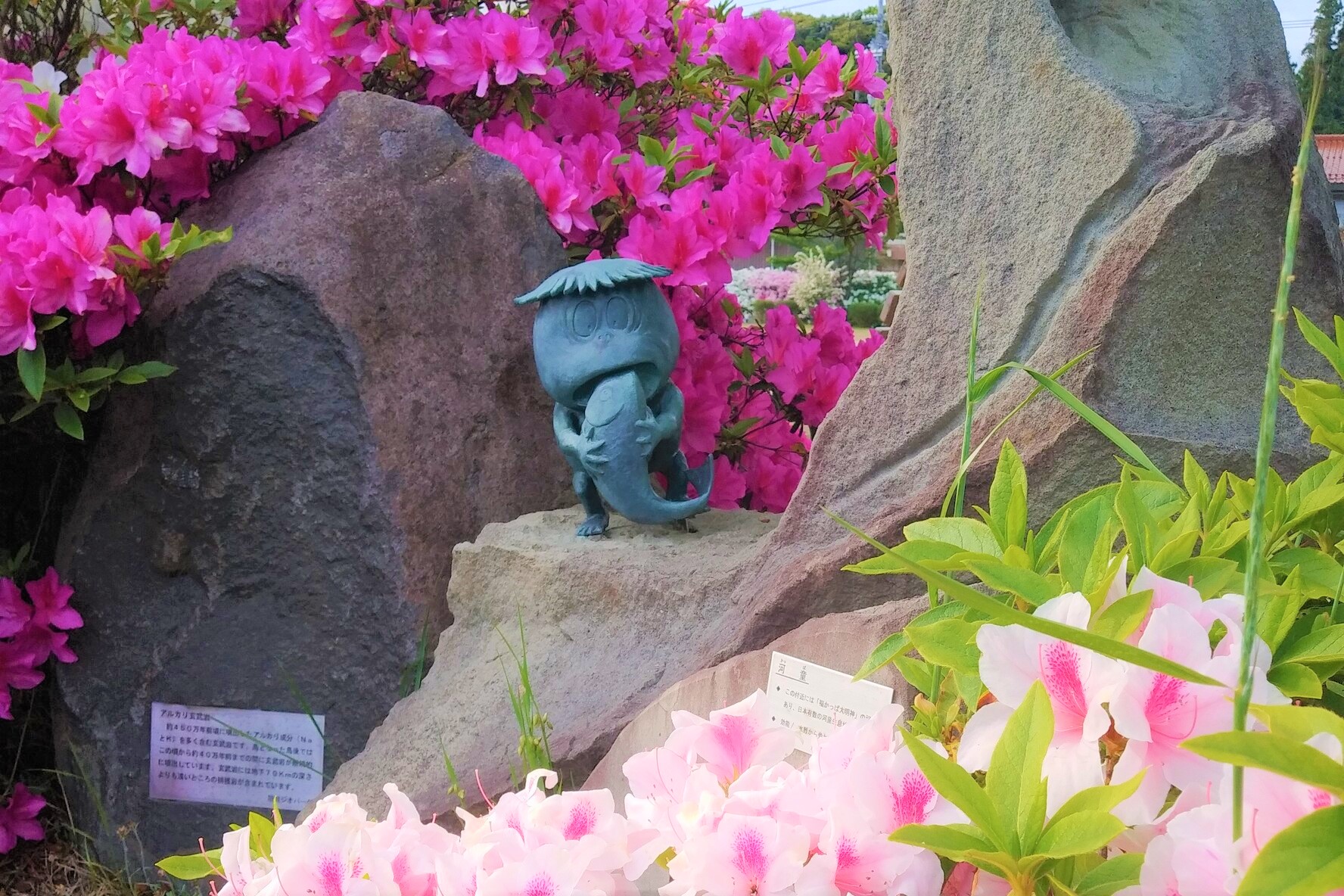
The following night, a tearful, apologetic kappa came knocking on Kyūbei’s door. The creature begged to get its arm back, but the man would have none of it. Kappa then paid a visit the following and every night after that, until finally a full week of pleading yielded results and Kyūbei’s anger appeased. Upon a solemn vow to never, ever steal his cucumbers or bother the little ones in his family, Kyūbei gave the creature its arm back. From that time on, kappas were regarded by the local people as benevolent beings that would protect every child who claimed a family relation with Kyūbei.
Author: Izabela Raczynska

